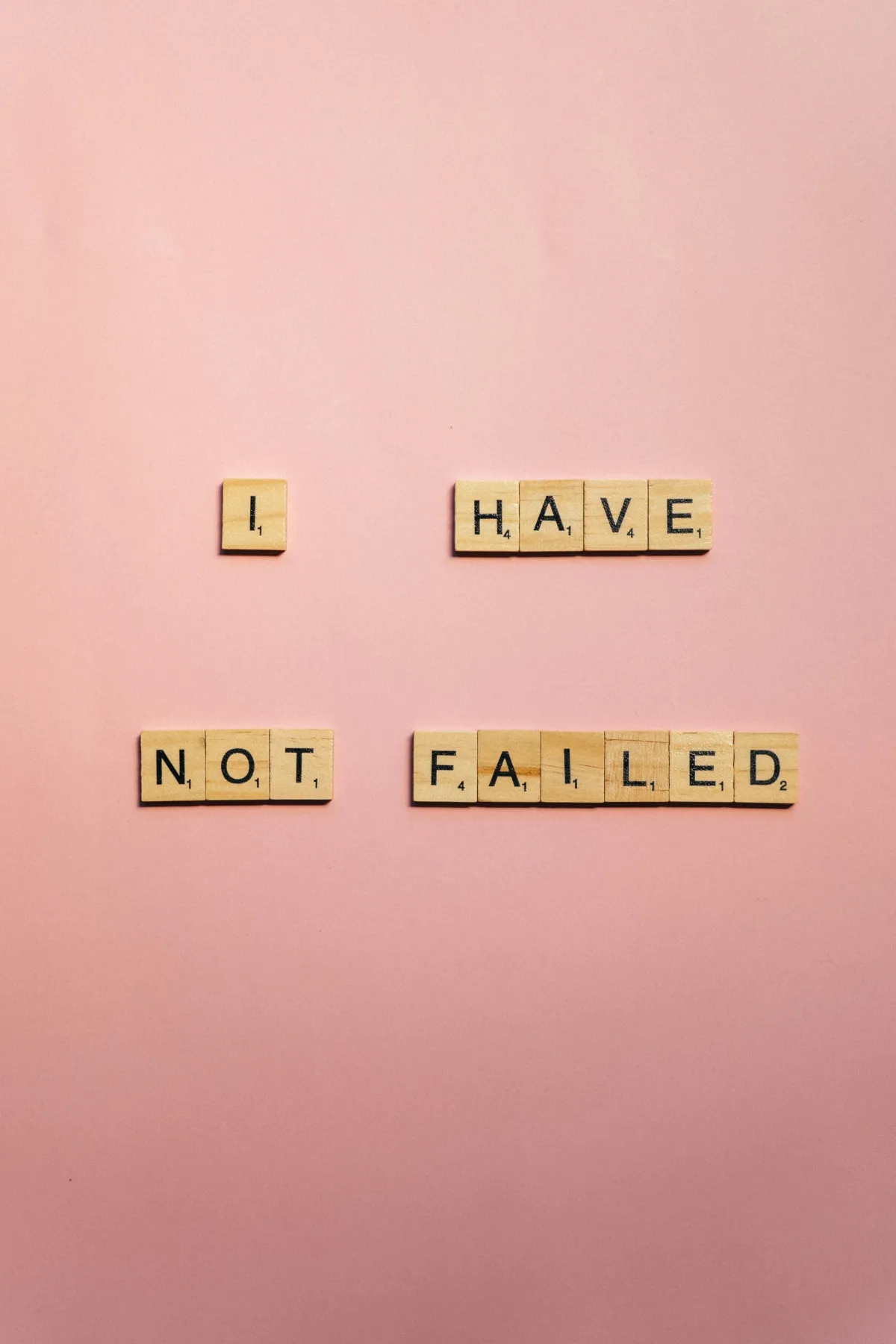Discover The Latest Blogs
Stay updated with Our Informative Blog Posts

Your "Failure" Isn't Final - It's Data - Paul Oneid
Your "Failure" Isn't Final - It's Data
Last week, I had a check-in with a client who was convinced she'd completely derailed her progress.
Her toddler had been sick. Work was chaotic. She'd ordered pizza twice, eaten cookies standing over the sink, and her meal prep containers sat untouched in the fridge.
She called it "falling off track." I called it baseline data.
Here's what I mean: She didn't fail. She provided me with incredibly valuable information about what happens when stress hits and her usual systems collapse. Now we know exactly where the gaps are and what we need to fortify.
But here's the part that gets people stuck - especially high achievers like you.
You're so busy judging the failure that you never extract the lesson from it.
You beat yourself up for not being perfect, label yourself as "lacking discipline," and promise to "do better next time" without ever actually analyzing what happened or why it happened. Then you white-knuckle your way forward until the next stressor hits... and the pattern repeats.
This is the opposite of anti-fragility. This is just repeatedly breaking in the same place.
The Real Problem With How We Handle Setbacks
When my client told me about her week, her narrative was drenched in shame. "I should have..." "I knew better..." "I just need more willpower..."
But here's what I heard: A person experiencing significant stress who reverted to the most accessible coping mechanism available in that moment.
That's not a character flaw. That's a data point.
The issue isn't that she ate emotionally. The issue is that she didn't have a system in place to handle that level of stress, and we'd never talked about what "good enough" looks like when life gets hard.
You can't optimize what you won't acknowledge.
Before we discuss what to do differently next time, we need to understand what happened this time. And that requires you to do something incredibly uncomfortable:
Feel the feelings without trying to fix them immediately.
The Personal Audit: Actually Feeling It
Most of you reading this are problem-solvers. When something goes wrong, your instinct is to seek a solution immediately. But if you skip the reflection phase, you're solving the wrong problem.
After your next setback - whether it's stress-eating, skipping workouts, breaking your meal prep streak, whatever - pause and ask yourself these questions:
In the moment:
How was I feeling physically? (Tired? Wired? Hungry? Full but unsatisfied?)
What was my emotional state? (Anxious? Overwhelmed? Bored? Lonely?)
Was I conscious of my decision, or did I operate on autopilot?
Looking back:
What happened in the hours or days leading up to this?
What stressors were present that I might have been dismissing as "not a big deal"?
What did I need in that moment that I wasn't getting?
After:
How did I feel immediately after? (Relief? Guilt? Numbness? Regret?)
How do I feel now, with some distance from it?
What narrative am I telling myself about what this "means" about me?
Write this down. Actually write it. You're not looking for the "right" answers here - you're collecting data on yourself.
This part is critical: You have to feel the feelings without judgment.
"I was overwhelmed and exhausted" is data. "I'm weak and pathetic" is your inner drill sergeant talking, and she needs to sit this one out.
Turning Setbacks Into Data: The Recalibration Process
Now—and only now—we remove the emotion and get tactical.
Step 1: Identify the Trigger
What actually happened? Be specific.
Not: "I stress-ate." Instead: "I had three back-to-back meetings that ran over, missed lunch, my son's daycare called about a fever, and I grabbed fast food on the way to pick him up, then ate his leftover chicken nuggets standing in the kitchen at 8 pm."
Step 2: Separate the Uncontrollable from the Controllable
Which parts of that situation were outside your control? Which parts had decision points where you could have chosen differently - even if the different choice was harder?
• Uncontrollable: Son getting sick, meetings running over • Controllable: Not having backup meal prep, not eating something between meetings, eating while standing/distracted
Step 3: Ask Better Questions
Instead of "Why did I mess up?" ask:
• "What system failed me here?" • "What would I need to have in place to handle this situation better next time?" • "What was 'good enough' in this scenario, and did I even give myself permission to do that?"
For my client, we realized she needed:
Grab-and-go protein options that don't require prep (string cheese, jerky, protein shakes)
A "chaos protocol" for days when shit hits the fan - not perfection, just better choices
Permission to order food that fits her goals instead of whatever everyone else wants
Step 4: Run the Experiment
Pick ONE thing to test differently next time. Not ten things. One.
For her, it was: "Keep three protein shakes in the car and grab one between meetings if lunch is getting pushed."
That's it. We're not trying to prevent all stress-eating. We're trying to be 10% better in the same situation.
Step 5: Reassess and Iterate
When it happens again (and it will, because you're human), repeat the audit. Did your new system help? Where did it break down? What's the next 10% improvement?
This is anti-fragility in action. Each stressor reveals a weakness in your system. Each revelation is an opportunity to fortify that weakness. Over time, you become someone who doesn't break under the same pressures - not because you're more "disciplined," but because you've built systems that support you even when you're at your worst.
Progress, Not Perfection
Here's what I told my client, and what I'm telling you:
I don't need you to be perfect. I need you to be honest.
I need you to stop hiding your "failures" from yourself and start examining them like the valuable data they are. I need you to stop beating yourself up long enough to actually learn something.
Because every single setback is showing you exactly where to focus your energy next.
You're not failing at this. You're collecting evidence about what doesn't work so you can build something that does.
And that's not a weakness. That's how you become unfuckingbreakable.
What's one setback you've been judging instead of examining? Hit reply and tell me about it. Not looking for your perfect plan to fix it - just want to hear what happened and what you noticed.
Let's turn it into data together.
P.S. - If you're tired of the cycle of perfectionism → "failure" → shame → repeat, and you want someone in your corner who actually knows how to build systems that work for your life... that's exactly what we do at Master Athletic Performance. Reply to [email protected] and let's talk.
Stay Strong,
Paul Oneid, MS. MS. CSCS
Founder and Head Coach




